Art Guides
5 Artists to Watch: Cuba Edition
Now that Cuban art has flooded the market, where to start?
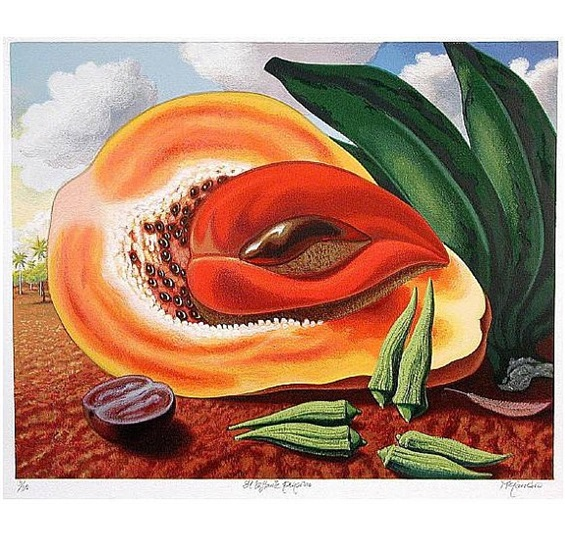
Now that Cuban art has flooded the market, where to start?

Artnet News

Unless you’ve been living under a rock, you know that political allegiances have recently shifted and the doors of communication and trade are opening up with Cuba once again. Art from the once-isolated island nation has flooded the market, so we decided to investigate and see what all the buzz is all about. Much of Cuba’s appeal rests on its supposedly untapped exoticism, and with that in mind, we found works that embody our (perhaps misguided) perceptions of the country and, more importantly, introduce you to some up-and-coming artists you need to know.
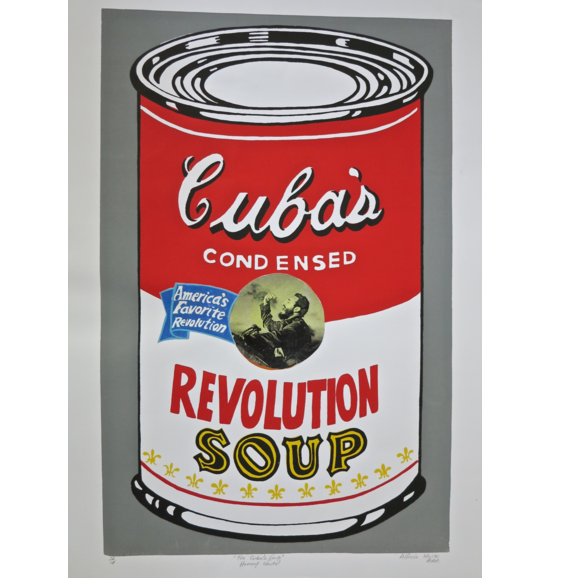
Alfredo Manzo Cedeño, The Cuba’s Soup, Homage Warhol, Revolution (2003). Courtesy of MLA Gallery.
The color red has a potent political significance and, whether consciously or subconsciously, red has been a recurring theme in many Cuban artists’ work. The strong hue takes every political conversation one step further, inevitably recalling communist Russian Constructivism, especially when paired with bold geometric forms. In addition to his use of red, the artist Alfredo Manzo Cedeño borrows iconic images of American consumerism, ironically juxtaposing against communist ideology.
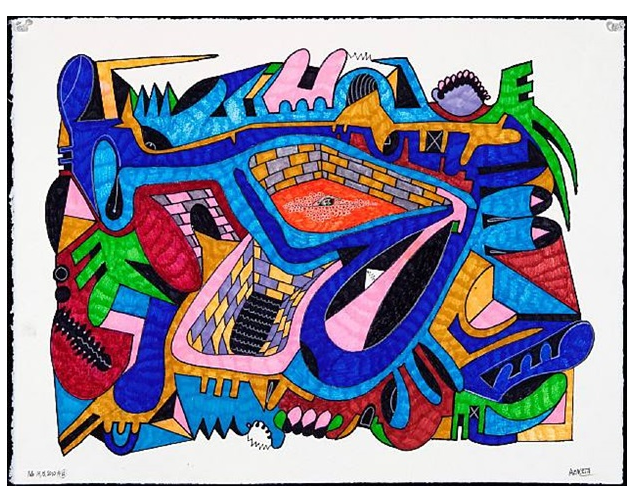
Luis Cruz Azaceta, Swimming to Havana VIII (2010). Courtesy of Lyle O. Reitzel.
Red is certainly not the only color Cubans express themselves with, however—a country with a famously colorful personality, Cuba embodies a wide-ranging palette in its lively architecture, people, cuisine, and vegetation. The artist Luis Cruz Azacata captures this vibrancy in his swirling, playful work, Swimming to Havana VIII. It’s easy to imagine the rainbow-streaked streets of Havana when looking at this artist’s oeuvre, so let this painting be a reminder for you to not miss out on the colorful experiences now available to you in Cuba.
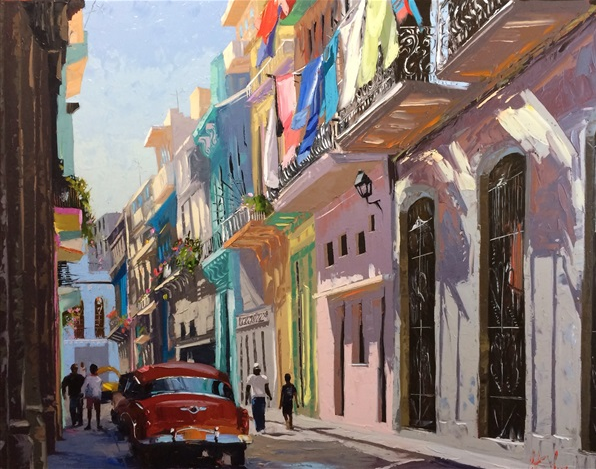
Peter C. Vey, Streets of Havana (2014). Courtesy of Gallery on Greene.
Just like color is part of Cuba’s charm, so is its old-school feel. Traveling to the country is like entering a time capsule, where you’re transported to a time that a lot of people romanticize, with vintage cars and classic building facades. Peter C. Vey paints contemporary works that look like they’ve stepped out from from another era—and though his painting may evoke nostalgic feelings, it shows what Cuba looks like today. If you long to return to the 1950s, now is a good time to live out this fantasy before it becomes modernized.
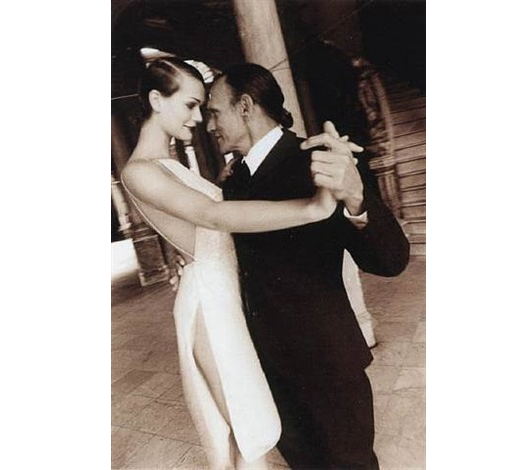
Esther Haase, Christine with a Cuban tango dancer II. Courtesy of Camera Work.
Put on your dancing shoes and cha cha cha like a scene out of Dirty Dancing Havana Nights (everyone liked that movie, right?). All you need is to find a partner like in Esther Haase’s racy photograph, Christine With A Cuban Tango Dancer II. This sultry scene serves as a reminder that it takes two to tango, so don’t forget to take a class to brush up on your dance moves before visiting—you will definitely want to experience Cuban nightlife.

Jose Ramon Alejandro, El Instante Perpetuo (2000). Courtesy of MLA Gallery.
To round off your Cuban experience, take a moment to soak in all of the tropical vibes. From food to foliage, on this far-away island visitors can immerse yourself in the lush and exotic. For those of you unable to make the trip in person, take a bite out of Jose Ramon Alejandro painting El Instante Perpetuo instead ,and let this juicy papaya satisfy your taste for a Cuban treat. We hope you get a chance to make the trip soon, and explore all that the Cuban art scene has to offer.